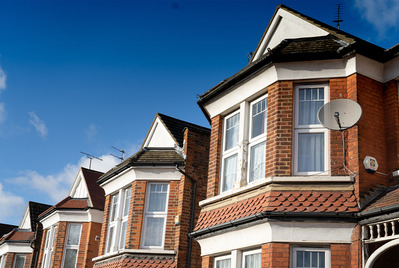
Way back in 2017 the government committed in its manifesto to a ‘Breathing Space’ scheme to help people manage problem debt, fast forwarding to 4th May 2021 and, those suffering from problem debt, now have the right, by law, to protection from their creditors, including their landlord or letting agent. Here we explain more.
What is the new Debt Respite Scheme?
The Debt Respite Scheme - or Breathing Space - is a new scheme, introduced by the government, which offers temporary protection to those in serious debt whilst they try to overcome their debt problem. There are two types of breathing space on offer, a standard one and a mental health breathing space.
It means that debtors will be protected from most types of debt collection, enforcement action and interest and fees on existing debts, during the breathing space, subject to certain rules that apply. It includes protection from being chased about rent arrears by a letting agent or landlord.
There will still be an expectation, however, that payments should continue to be made during the breathing space, where possible, including housing costs, monthly rental payments, utility bills, and taxes and that any borrowing is limited to just £500 during this time. Ultimately the protection aims to avoid their debt situation getting worse.
How do you apply for a Breathing Space?
A 60 day breathing space can be applied for through a debt adviser, authorised by the Financial Conduct Authority (FCA), who can offer debt counselling or a local authority that provides debt advice. There will then be the expectation that the applicant keeps in close contact with them during the breathing space. That’s not a requirement, however, during a mental health breathing space.
What is the mental health breathing space?
This is for those who can confirm, with the support of an approved mental health professional, that they are receiving crisis care. In this case the protection can last for as long as they are receiving crisis treatment, plus 30 days, provided evidence can be provided.
Are there any limitations to the breathing space?
Yes. The scheme is only available to those living in England or Wales and who don’t already have a formal debt solution, like an Individual Voluntary Arrangement, or who are already deemed bankrupt.
Most breathing space options can be used only once in a 12 month period although for those applying for a mental health breathing space, this does not apply.
At least one ‘qualifying debt’, such as rent arrears, an overdraft, utility bill arrears or council tax arrears, must be in existence. Court fines, Universal Credit advance payments and student loans do not, however, count as ‘qualified debts’.
What does Breathing Space mean for a landlord?
It’s understandable that some landlords may worry that a breathing space may impact them further if they already have a tenant in arrears but it’s only a temporary measure and the tenant will still be required to pay their ongoing rent. It’s not a way for the tenant to avoid paying rent but simply aims to give them time to address their existing debt problem.
You’d be notified in a debt owed to you is in a breathing space, and the starting date of this, either by your letting agent (if notified) or direct from the scheme. You’ll also be advised what you should, and should not, do as well as be provided with details of who to go to, to ask questions.
During the timeframe of the breathing space, rent arrears letters, emails, telephone calls, in relation to the debt covered by the breathing space, must be paused. Court Hearings too must be stayed in relation to a Section 8 and rent arrears and any bailiff warrant or High Court enforcement delayed. It’s also been recently announced that updated Section 8 notices must also be used from 4th May – which now includes reference to the breathing space scheme. If not, there is a risk that the notice will not be enforceable
What does Breathing Space mean for a tenant?
If you are struggling to pay your rent you should seek advice from your letting agent or, if dealing direct with your landlord, contact them to try to work out how you might pay it. The breathing space won’t stop the need for you to pay the rent, and you’ll get reminders each month going forward, but should give you some temporary relief from being pursued for rent you’ve been unable to pay in the past.
Further information can be found on the government website.
The Your Move Content Marketing Team



